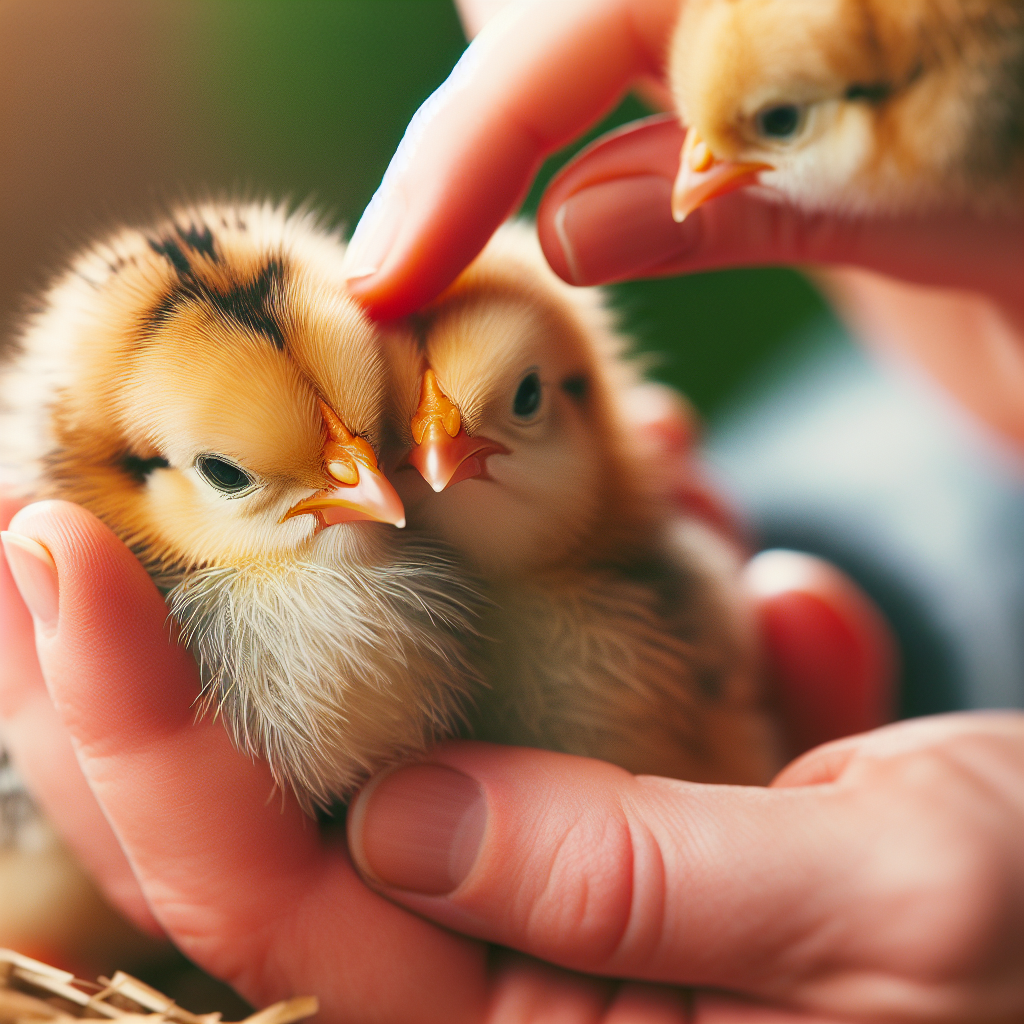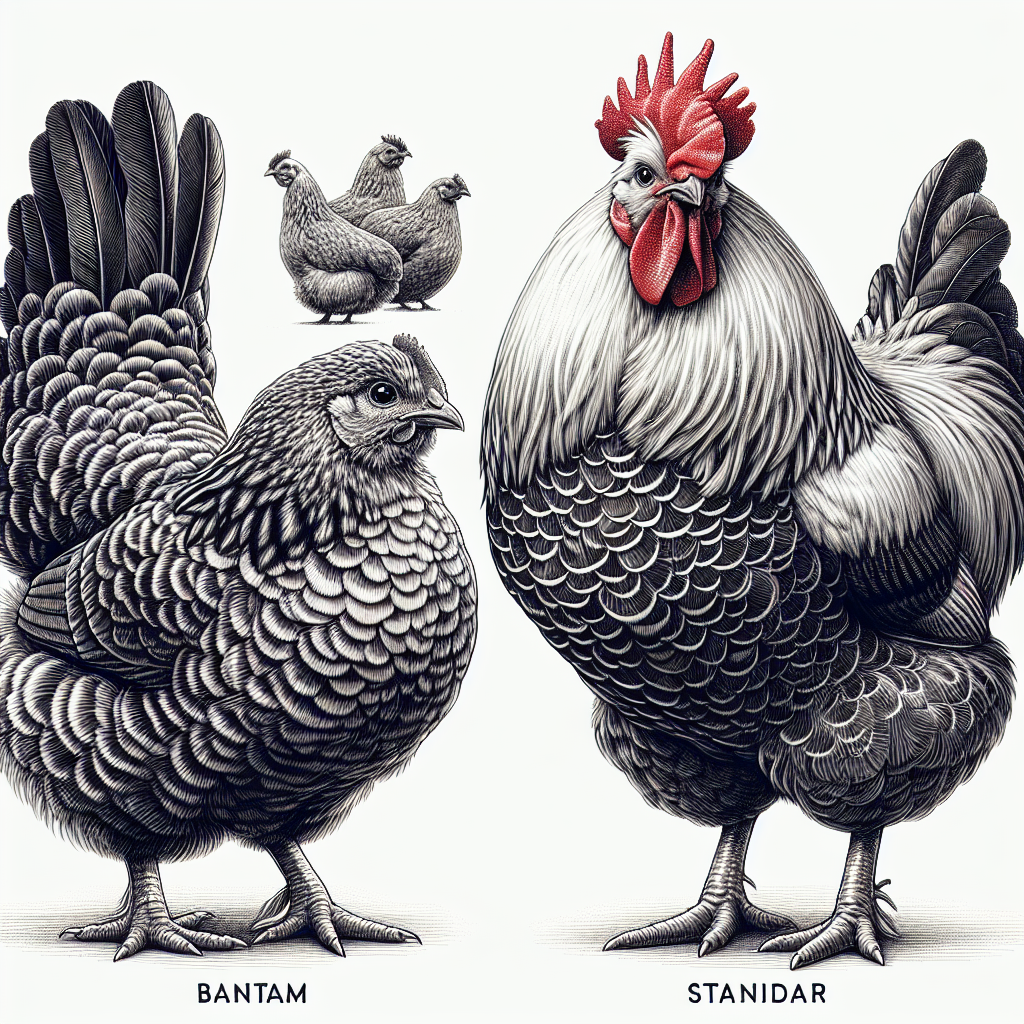If you’re a chicken enthusiast looking to foster a positive social environment for your younger feathered friends, you might find yourself pondering the question of how to promote positive social behaviors in these adorable birds. As young chickens explore the world around them and interact with their coop mates, it’s essential to create an environment that nurtures positive interactions, cooperation, and a sense of community. In this article, we’ll explore some practical and effective ways to encourage socialization among younger chickens, helping them develop strong bonds and ultimately leading to a harmonious flock. So, let’s embark on this friendly journey as we delve into the world of promoting positive social behaviors in your feathery companions!
Establishing a Positive Social Environment
Creating a positive social environment is essential for promoting healthy interactions among younger chickens. There are several factors to consider when establishing this environment.
Providing Sufficient Space
One of the most important aspects of promoting positive social behaviors in younger chickens is to provide them with sufficient space. Overcrowding can lead to increased stress levels and aggressive behavior. Ensure that each chicken has enough space to move around comfortably and engage in natural behaviors.
Ensuring Adequate Lighting
Proper lighting plays a significant role in the social dynamics of chickens. Adequate lighting not only helps chickens see and interact with each other but also regulates their circadian rhythms. Ensure that the chicken coop or outdoor area is well-lit with natural or artificial light to support positive social behaviors.
Maintaining Appropriate Temperature
Maintaining an appropriate temperature is crucial for the overall well-being of chickens. Extreme heat or cold can cause stress and discomfort, which can lead to aggressive behavior. Provide a well-ventilated and insulated coop, ensuring that the temperature remains within a comfortable range for the chickens.
Providing Enrichment Activities
Enrichment activities are essential for keeping young chickens mentally stimulated and encouraging their social interactions. Provide them with toys, perches, and objects to peck and explore. This will help reduce boredom and promote positive social behaviors among the flock.
Fostering Social Interactions
Encouraging social interactions among younger chickens is vital for their growth and development. Here are some strategies to promote positive social behaviors:
Introducing Younger Chickens to Older Ones
Introducing younger chickens to older ones allows for socialization and learning from experienced members of the flock. When introducing them, closely monitor their interactions to ensure that older chickens are not overly aggressive towards the younger ones. Gradually increasing the duration of their interactions will help establish positive social bonds.
Implementing a Consistent Feeding Schedule
Establishing a consistent feeding schedule helps to create a sense of routine among the flock. When chickens know when and where they will receive their meals, it reduces competition and minimizes aggressive behavior during feeding time.
Allowing for Free Range Time
Free range time is essential for chickens to explore their surroundings, engage in natural behaviors, and interact with each other. Allowing them access to outdoor areas or a spacious run provides opportunities for social interactions and promotes positive social behaviors.
Offering Opportunities for Dust Bathing
Dust bathing is a natural behavior for chickens, which not only helps them maintain feather health but also promotes social interactions. Provide a designated dust bathing area with loose soil or sand, encouraging chickens to dust bathe together. This activity not only strengthens social bonds but also helps reduce aggressive behavior.
Monitoring Health and Nutrition
The health and nutrition of younger chickens have a direct impact on their social behaviors. Here are some important factors to consider:
Providing a Balanced Diet
A balanced diet is crucial for the overall health and well-being of chickens. Ensure that their feed contains the necessary nutrients, including a good protein source, vitamins, and minerals. A well-balanced diet helps maintain their physical health, which in turn supports positive social behaviors.
Ensuring Access to Fresh Water
Fresh water availability is essential for chickens to stay hydrated and maintain their overall health. Check water sources regularly to ensure they are clean and filled. Hydrated chickens are generally more content and less prone to aggressive behaviors.
Regular Veterinary Check-ups
Regular veterinary check-ups are crucial for monitoring the health of younger chickens and addressing any potential issues early on. A healthy chicken is more likely to engage in positive social behaviors, so seeking professional advice and guidance is essential for maintaining a healthy flock.
Addressing Aggressive Behavior
Aggressive behavior can disrupt the harmony and positive social interactions within a flock. It is important to identify and address signs of aggression promptly:
Identifying Signs of Aggression
Observing the behavior and body language of chickens can help identify signs of aggression. These signs may include pecking at others excessively, puffing up feathers, chasing or cornering other chickens, or aggressive vocalizations. Identifying these signs is the first step in addressing aggressive behavior.
Separating Aggressive Chickens
If a chicken exhibits persistent aggressive behavior, it is important to separate them from the rest of the flock. Providing a separate space allows the aggressive chicken to cool down and prevents them from harming others. It also gives other chickens a chance to interact without fear or tension.
Implementing Environmental Modifications
Modifying the chicken coop or outdoor area can help minimize aggressive behaviors. Adding visual barriers, such as dividers or hiding spots, can create separate spaces for chickens to retreat to, reducing encounters that may trigger aggression. Modifying the environment to create more hiding spots and perches also gives chickens a chance to escape potential conflicts.
Utilizing Distractive Techniques
Sometimes, distracting aggressive chickens with alternative activities can redirect their attention and reduce aggression. Providing toys or treats in separate areas can help divert their focus from aggressive behaviors. This technique not only minimizes aggression but also encourages positive social behaviors among the flock.
Managing the Pecking Order
Establishing and managing the pecking order is essential for the social structure of a chicken flock. Here are some strategies to manage the pecking order effectively:
Allowing Natural Establishment
Allowing the natural establishment of the pecking order among younger chickens is crucial for their social development. Supervise their interactions to ensure that dominance is established without excessive aggression. Natural pecking order helps maintain harmony within the flock.
Providing Sufficient Resources
Ensure that there are sufficient resources, such as food, water, and nesting areas, for each chicken within the flock. Lack of resources can trigger aggressive behaviors due to competition. Providing an ample supply of resources will help minimize conflicts and establish a balanced social structure.
Avoiding Overcrowding
Overcrowding can increase stress levels and escalate aggressive behaviors among chickens. Providing enough space for each chicken and avoiding overcrowding is essential for ensuring a healthy social environment. This allows chickens to establish their space and reduces the likelihood of aggression.
Managing the Integration Process
When introducing new chickens to an existing flock, manage the integration process gradually. Start by placing the new chickens in a separate but visible area, allowing them to acclimate to each other’s presence. Over time, introduce short supervised interactions, gradually increasing their duration as the chickens become more familiar with each other. This managed integration helps establish a positive social dynamic within the flock.
Implementing Positive Reinforcement
Using positive reinforcement techniques can strengthen desired behaviors and promote positive social interactions among younger chickens:
Rewarding Desired Behaviors
Rewarding chickens for desired behaviors, such as gentle pecking and calm interactions, reinforces these positive actions. Offer treats or verbal praise when chickens engage in cooperative behaviors with each other. Positive reinforcement encourages the continuation of these behaviors in the future.
Using Treats and Food as Incentives
Using treats and food as incentives can be an effective way to encourage positive social behaviors. Provide treats when chickens interact peacefully or share resources without aggression. This positive association with treats reinforces the desired behavior and strengthens social bonds within the flock.
Practicing Clicker Training
Clicker training is a method that uses a distinct sound, like a clicker, to mark desired behaviors and communicate with chickens. By associating the sound with rewards, such as treats or positive attention, clicker training can be used to reinforce positive social behaviors. This training technique enhances communication and understanding between chickens and their caregivers.
Encouraging Comfort and Security
Creating a comfortable and secure environment is essential for promoting positive social behaviors among younger chickens. Consider the following strategies:
Creating Cozy Nesting Areas
Providing cozy nesting areas gives chickens a sense of comfort and security. Place nesting boxes in secluded areas, ensuring they are clean, well-bedded, and adequately sized. Cozy and secure nesting areas contribute to a calm and content flock, promoting positive social behaviors.
Ensuring Protection from Predators
Protecting chickens from potential predators is crucial for their well-being and sense of security. Install secure fencing, predator-proof locks, and adequate lighting to deter predators. By providing a safe environment, chickens can focus on their social interactions without fear or distress.
Establishing a Sense of Enclosure
Create a sense of enclosure within the chicken coop or outdoor area to help chickens feel secure. Use natural barriers, such as shrubs or fences, to define their space and reduce stress levels. A well-defined and enclosed space provides a sense of safety, allowing chickens to engage in positive social behaviors.
Helping Chickens Build Bonds
Promoting bonds among chickens is important for their social well-being. Here are some strategies to help chickens build positive relationships:
Allowing Chickens to Roost Together
Allowing chickens to roost together encourages bonding and social interactions. Provide ample roosting spots at different heights to accommodate the entire flock comfortably. Roosting together not only promotes a sense of security but also strengthens social bonds within the flock.
Encouraging Social Grooming
Chickens engage in social grooming, which involves preening each other’s feathers. Encourage this behavior by providing dust bathing areas and perches where chickens can groom each other. Social grooming helps build trust, strengthens social bonds, and promotes a positive social environment.
Promoting Group Foraging
Group foraging activities stimulate social interactions among chickens. Scatter food or treats in an open area that requires chickens to forage together. This not only encourages cooperative behavior but also provides opportunities for chickens to bond over shared resources.
Modeling Positive Behavior
As a chicken caregiver, modeling positive behavior is crucial for promoting positive social interactions. Here are some ways to model positive behavior:
Being Gentle and Calm Around Chickens
Chickens are sensitive to the energy and demeanor of their caregivers. Being gentle and calm when interacting with chickens sets a positive tone and helps them feel safe and comfortable. Avoid sudden movements or loud noises that may startle or stress the chickens.
Providing Gentle Interactions
Interacting gently with chickens promotes trust and positive social behaviors. Use soft and calm voices when speaking to them, and handle them with care. By providing gentle interactions, chickens feel valued and are more likely to engage in positive social interactions.
Avoiding Harsh Punishments
Negative interactions or harsh punishments can lead to fear and aggression in chickens. Avoid physically punishing or yelling at chickens, as it only escalates their stress levels and hinders positive social behaviors. Instead, focus on positive reinforcement and redirecting behaviors to create a harmonious flock.
Promoting Diversity and Pecking Order Harmony
Introducing breed diversity and managing the pecking order balance can contribute to a harmonious flock. Consider the following strategies:
Introducing Different Breeds of Chickens
Introducing different breeds of chickens can create a diverse and balanced flock. Different breeds have varying temperaments and behaviors, reducing the likelihood of aggression due to dominance struggles. Carefully choose breeds that are known to be compatible with each other.
Avoiding Overly Aggressive Breeds
Some chicken breeds are more prone to aggressive behaviors than others. Avoid introducing overly aggressive breeds to younger chickens, as this may disrupt the social dynamics of the flock. Research each breed’s temperament and choose breeds known for their docile and friendly nature.
Balancing the Gender Ratio
Maintaining a balanced gender ratio within the flock is important for mitigating aggressive behaviors. In rooster-to-hen flocks, having too many roosters can lead to increased aggression. Ensure a suitable ratio of roosters to hens based on the breed’s recommended guidelines. A balanced gender ratio promotes more harmonious social interactions among chickens.
In conclusion, promoting positive social behaviors in younger chickens requires careful consideration and implementation of various strategies. By providing a positive social environment, fostering social interactions, monitoring health and nutrition, addressing aggressive behavior, managing the pecking order, implementing positive reinforcement, encouraging comfort and security, helping chickens build bonds, modeling positive behavior, and promoting diversity and pecking order harmony, you can create a healthy and harmonious flock of chickens. Remember to observe and adapt these strategies based on the specific needs and behaviors of your chickens to ensure their overall well-being and social development.




